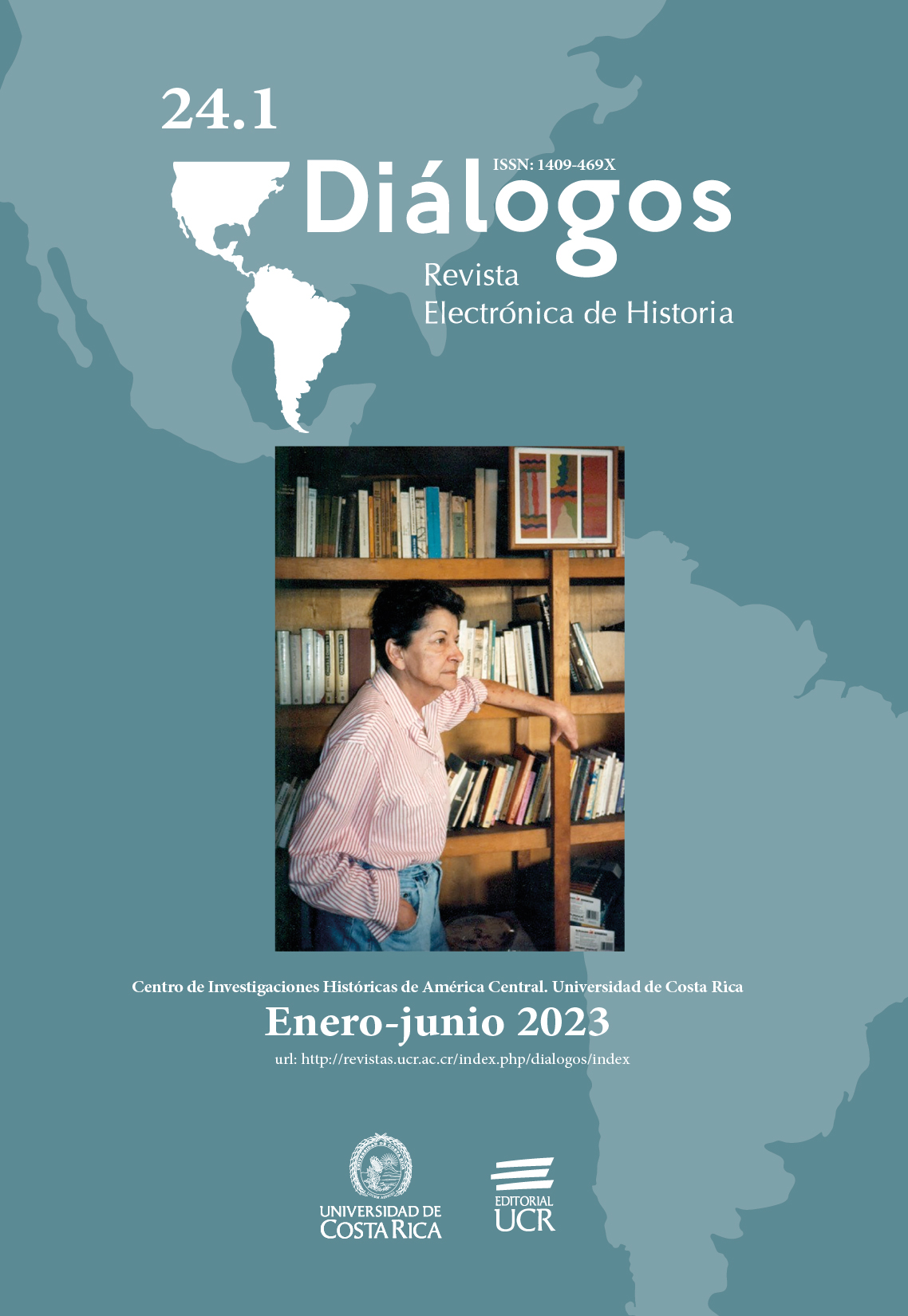Abstract
The Costa Rican writer Carmen Naranjo Coto (1928-2012) makes, in her early novels, published in the 1960s, a profound reflection related to the city of San José and its residents, who face processes of coexistence in the context of a Central American capital that begins its entry into globalization. To demonstrate this, the next novels are analyzed Los perros no ladraron (1966); Camino al mediodía (1968) and Memorias de un hombre palabra (1968), whose characters are subjects with their own concerns about the transition from modernity to postmodernity, since what is in crisis is the very construction of subjectivity and the questioning of the absolute truths. As thematic axes of the analysis, indifference as a generator of anguish in the subject and the invisibility of the subject-citizen are proposed. Also, a dialogue is established between Naranjo's novels and some of the conceptual proposals of authors such as the philosopher and sociologist Georg Simmel, the psychoanalyst Sigmund Freud, the philosopher and sociologist Herbert Marcuse, and the literary critic Rafael Valenzuela.
References
Alvarado, C. et al. (2018). Globalización, Cultura Local y Frontera del Sujeto. Revista Inter Sedes, Vol.19(39), 105-132. http://dx.doi.org/10.15517/isucr.v19i39.34072.
Arias, M. (16 de setiembre de 2004). Carmen Naranjo: ‘Creo en la literatura comprometida’. Entrevista a Carmen Naranjo. Semanario Universidad, Universidad de Costa Rica https://historico.semanariouniversidad.com/cultura/carmen-naranjo-creo-en-la-literatura-comprometida/
Corral, R. (2007). “¿Qué es la postmodernidad?”, Revista Casa del Tiempo, marzo-abril, Vol. IX(98), 67-73.
Freud, S. (1985), “El malestar en la cultura”. En Braunstein, N. et al. (1985), A medio de El malestar en la cultura de Sigmund Freud (pp.22-116). Siglo XXI Editores.
García Canclini, N. (1999). La globalización imaginada.
López, C. y Prieto, R. (2004). El abandono infantil: una mirada desde el psicoanálisis. [Tesis de Licenciatura en Psicología, La Academia, Santiago de Chile].
Marcuse, H. (1993). El hombre unidimensional: ensayo sobre la ideología de la sociedad industrial avanzada. Editorial Planeta Mexicana.
Naranjo, C. (1966). Los perros no ladraron. ECR
Naranjo, C. (1968). Camino al mediodía. Imprenta Lehmann.
Naranjo, C. (1968). Memorias de un hombre palabra. ECR.
Naranjo, C. (1974). Diario de una multitud (en cursiva). EDUCA.
Quesada, Á. (2000). La narrativa costarricense del último tercio de siglo. Letras (32), 17-43.
Ruiz, E. (2012). Sujetos posmodernos, ¿sujetos al desamparo extremo?: El exterminio de los otros: mercantilismo, guerras, genocidio. Espiral, (53), 151- 182. http://www.scielo.org.mx/scielo.php?script=sci_arttext&pid=S1665-05652012000100006&lng=es&tlng=es.
Sasa, Z. (2017). San José, ciudad y evolución. La pérdida de la cohesión urbana. Polis Research Centre. 52, 9-69. https://revistes.ub.edu/index.php/waterfront/article/view/18612
Simmel, G. (1903). La metrópolis y la vida mental. http://www.bifurcaciones.cl/004/bifurcaciones_004_reserva.pdf
Valenzuela, O.R. (2016). ¿Cómo haremos para desaparecer? La disolución del sujeto en la literatura postmoderna. [Tesis doctoral, Universidad Autónoma de Barcelona, España]. http://hdl.handle.net/10803/400008
##plugins.facebook.comentarios##

This work is licensed under a Creative Commons Attribution-NonCommercial-NoDerivatives 4.0 International License.
Copyright (c) 2022 Ruth Cubillo Paniagua


